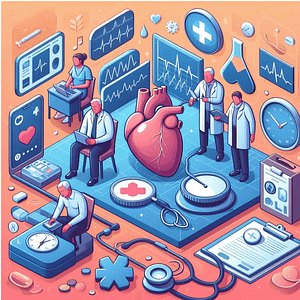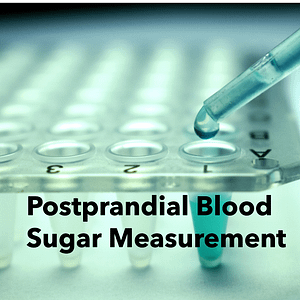Your Health in Your Pocket: Smartphone-Based Chronic Condition Monitoring with PPG
Chronic health conditions, like heart disease, asthma, and diabetes, affect millions of people globally. Managing these conditions often involves frequent monitoring of vital signs like heart rate, blood oxygen levels, and respiration rate. Traditionally, this has meant relying on bulky medical equipment or regular visits to healthcare providers. However, the rise of smartphone technology has opened doors for a new era of convenient and accessible chronic disease management: smartphone-based vital sign monitoring using photoplethysmography (PPG).
PPG: Harnessing Light for Health Insights
PPG is a non-invasive technique that utilizes light to measure changes in blood volume beneath the skin. By placing your finger on a smartphone’s camera and flashlight (or using a specialized clip-on attachment), the device captures subtle variations in light absorption caused by your pulse. This PPG signal is then analyzed by sophisticated algorithms to extract vital sign information.
Smartphone-Based Monitoring: A Game Changer
Smartphones are ubiquitous, making PPG-based vital sign monitoring incredibly accessible. Here are some key advantages this technology offers for chronic health management:
- Convenience: No more lugging around bulky equipment. Take your vital sign readings anytime, anywhere, with just your smartphone.
- Cost-Effectiveness: Compared to traditional monitoring tools, smartphone-based solutions are significantly cheaper, making chronic disease management more affordable.
- Real-Time Tracking: Continuously monitor your vitals throughout the day, allowing for a more comprehensive picture of your health.
- Data Collection: Smartphones can store your vital sign readings over time, enabling you and your healthcare provider to identify trends and make informed decisions.
- Alerts and Reminders: Set up alerts to notify you of any abnormal readings, prompting you to take necessary actions. Reminders can ensure you don’t miss crucial medication or self-monitoring steps.
Beyond Basic Vitals: Potential for Advanced Monitoring
The potential of PPG-based smartphone monitoring extends beyond basic vitals. Researchers are exploring its use for:
- Blood Pressure Estimation: Advanced algorithms are being developed to estimate blood pressure using PPG data, offering a more convenient alternative to traditional cuff-based methods.
- Stress Detection: By analyzing heart rate variability (the subtle variations in time between heartbeats), PPG may offer insights into stress levels, allowing for better stress management techniques.
- Sleep Quality Monitoring: PPG data can be used to track sleep patterns, including sleep duration, sleep stages, and potential sleep disturbances.
Important Considerations
While exciting, it’s important to remember that smartphone-based PPG monitoring is still evolving.
- Accuracy: Accuracy can be affected by factors like movement, skin tone, and ambient light. These technologies are not replacements for medical-grade devices and should be used in conjunction with traditional methods and under a healthcare provider’s guidance.
- Data Security: Ensure the applications you use have robust data security measures in place to protect your sensitive health information.
The Future of Chronic Disease Management
Smartphone-based PPG monitoring offers a promising future for chronic disease management. As technology advances, accuracy and functionality will continue to improve. This empowers individuals to take a more active role in managing their health, fostering a collaborative approach with healthcare providers. With continued research and development, smartphone-based PPG monitoring has the potential to revolutionize the way we monitor and manage chronic health conditions.
Empowering you with knowledge is key. Consult with your healthcare provider to discuss if smartphone-based PPG monitoring is a suitable option for your specific condition.
Additional Resources:
- The ALS Association: https://www.als.org/
- The Michael J. Fox Foundation for Parkinson’s Research: https://www.michaeljfox.org/ (ALS research is a focus area)
- RAVCARE: https://ravcare.com (Develops digital therapeutics for various neurological conditions)






